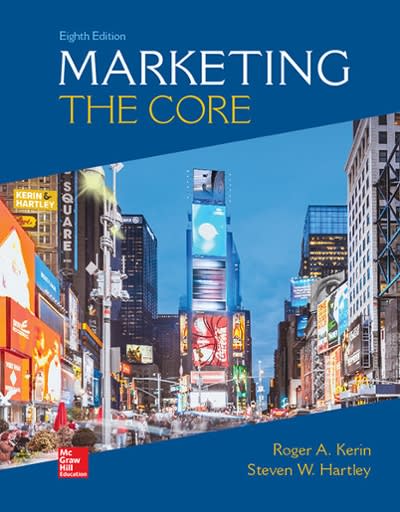Akio Toyoda, president of Toyota Motor Corporation, recently announced, Its my goal to transition Toyota from an
Question:
Akio Toyoda, president of Toyota Motor Corporation, recently announced, “It’s my goal to transition Toyota from an automobile company to a mobility company.” What exactly does that mean? According to Jana Hartline, Mirai and Prius Prime marketing manager at Toyota,
“It means that the days of traditional vehicle models are ending and the way we move is going to change in the future. We are looking at autonomous vehicles, we are looking at shared transportation, and we are looking at how we help people move across their living room and across the city. It’s not just about vehicles anymore, it’s about how you move people and that is what Toyota is focusing on.” Welcome to the future;
it’s already here at Toyota!
THE COMPANY Akio’s grandfather, Kiichiro Toyoda, started the company in Japan as a manufacturer of weaving looms.
Research on gasoline-powered engines led to the construction of an automobile manufacturing facility and the company’s first vehicle, the “Toyopet.” Subsequent vehicles included the Toyota Corolla, which is still one of the best-selling cars in the world and recently exceeded 44 million purchases in more than 150 countries. Other brands were also developed, including Lexus, Hino, Ranz, and Daihatsu.
Toyota grew to become one of the largest automobile manufacturers in the world, regularly vying for first place with Volkswagen. The company is ranked number five on Fortune’s list of the world’s largest corporations, with sales of $254 billion and 369,000 employees. In addition, Toyota ranks ninth on the Forbes list of the world’s most valuable brands.
What factors have contributed to the company’s success? First, the Toyoda family advocates an inspiring corporate philosophy:
Seeking harmony between people, society, and the global environment, and sustainable development of society through manufacturing.
This philosophy has been supported by several statements of business values. They include The Toyota Way and The Toyota Effect.
The Toyota Way
“The corporate culture here at Toyota is guided by what we call the Toyota Way,” explains Rommel Momen, Mirai manager at Toyota. “The Toyota Way is made up of two pillars, respect for people and continuous improvement,” he adds. The two pillars are supported by five business practices: challenge,
kaizen, genchi genbutsu, respect, and teamwork (see Figure 1). Momen says kaizen means “continuously improving by getting suggestions from the end user and tweaking our product to make it better and better,” and genchi genbutsu means to “go look and see, go to the source, talk to the consumer, and use your own eyes, feelings, and experiences to make a great and successful product.” He adds, “We try to make sure that all parties are in agreement with a strategy so that we are more cohesive, work better as a team, and show respect for people.”
1 Describe Toyota’s transition from an automobile company to a mobility company.
2 How does Toyota’s corporate philosophy relate to the concepts of profit responsibility, stakeholder responsibility, and societal responsibility?
3 How does Toyota’s Mirai fit with the goals of the Challenge 2050 initiative?
4 What new mobility products and services is Toyota considering for the future? What activities would you recommend for Toyota as it prepares for the future?
Step by Step Answer:






